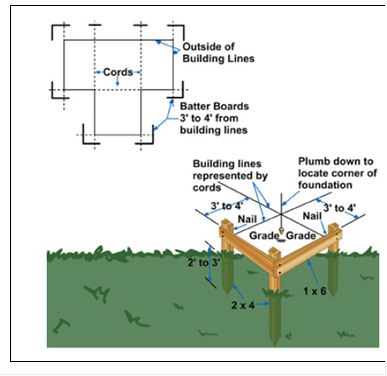How to Do Site Work for Construction
Credit: 7 PDH Hours
Course Fee: $105.00
59 pages
How it Work!
- Register first and log into your account. Study and take the quiz for FREE until passed.
- After passing the quiz, follow the page, pay for the course and print your certificate.
Course Summary:
This chapter introduces you to the concepts of site surveys, including construction surveys, bench marks, datum, and mean sea level. You will learn about earthwork operations, including pioneering, grubbing, stripping, and drainage. You will get an introduction to permits that need to be coordinated with local agencies for construction projects, including utility interruption requests, excavation requests, and road closure requests.

This chapter describes the common types of leveling instruments; including their principles, uses, procedures of establishing elevations, and techniques of laying out building lines. As a Builder, you will find the information especially useful in performing such duties as setting up a level, reading a leveling rod, interpreting and setting grade stakes, and setting batter boards.
Information on classifying and testing soils is included in this chapter. You will learn about practices and measures to stabilize soil on construction sites, which can also help prevent slides and cave-ins at excavation sites.
Learning Objective:
By the end of this course, you will be able to do the following:
- Explain types of site surveys and their components, including construction surveys, benchmarks, datum, and mean sea level.
- Explain types of earthwork operations, including pioneering, grubbing, stripping, and drainage.
- Describe types of leveling instruments and their uses.
- Interpret readings from a leveling rod.
- Determine elevations in the field to locate points at specified elevations.
- Determine boundaries of building layout.
- Determine classes of soils through soils testing.
- Determine soil stabilization strategies.
Review the quiz before studying the course.
Course Content
Course Author: Franco. Davati, P.E.
Certificate of completion of the course
This course comes with a multiple-choice quiz. You can view the quiz and take the quiz if you are logged in your account. You can take the quiz for this online PDH course as many times until passed. The passing grade is 70% and above. After you pass the quiz simply follow the page, to pay for the course and print your certificate instantly. A copy of the certificate and receipt for this course will always be in your account.
This online PDH course can also be used as a continuing education course for the following.
